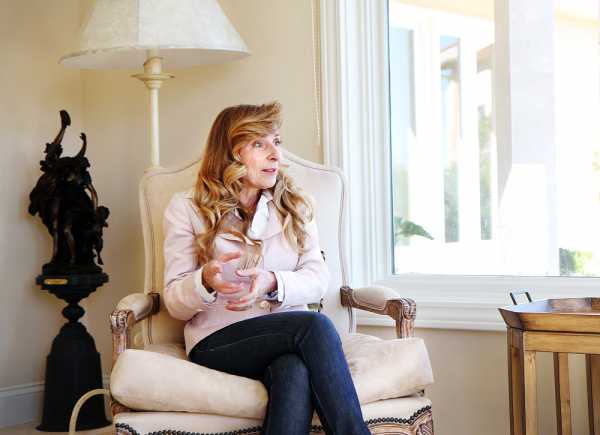By Dave Boyce
Almanac Staff Writer

Aydan Kutay brings an usual background to the Woodside Planning Commission, where she is the newest member. She grew up in Istanbul, and has a degree in urban planning from the Middle East Technical University in Ankara.
Urban planning was attractive as an undergraduate major, she says, because of major changes going on in her native country in the 1970s. Mechanized agriculture had driven rural migrants into squatter camps in and around the major Turkish cities, resulting in chaotic living conditions.
Ms. Kutay remembers how the city of her birth reacted to the squatters and the pressures of modernity: “with concrete blocks of high rises, international hotel chains, offices (and) condominium developments,” she says in an email
With no municipal codes and no general plan, Istanbul became a victim of uncontrolled development, she said.
Woodside
The Woodside Town Council appointed her to the Planning Commission in a unanimous vote Feb. 28. The commission advises the council on zoning issues and approves conditional use permits and variances.
Ms. Kutay lives on Hardwick Road in the Woodside Hills neighborhood with her two dogs, a German shepherd and a mixed breed; her two children are in graduate school and college, respectively, she said in an interview.
After she came to the United States in 1982, she obtained a master’s degree in public policy and a doctorate in economics and public policy analysis, both from Carnegie Mellon University in Pittsburgh.
As an economist and professor of economics and public policy, she has had teaching positions at Carnegie Mellon, the University of Pittsburgh, the University of California at Berkeley, and the University of Southern California, according to the application she submitted for the commission seat. She came to California in 1992.
Ms. Kutay, 49, told the council that she taught as an adjunct professor at Stanford University, and that she is currently a consulting analyst with the Federal Reserve Bank in San Francisco.
A long-distance runner, she said she has run three half-marathons in San Francisco and plans to run the full city marathon in July.
Among the civic-minded activities on her application are concerns for animals, the homeless and promotion of the fine arts.
In an email, she said she founded the ACE Project, a San Francisco-based nonprofit with a goal of “collecting and disseminating research information on integrating new technologies to the economic system” to promote economic growth not based on consumption, to educate the public about climate change, and to create electronic global communities with the goal of reducing greenhouse gas emissions.
Her reasons for serving on the Planning Commission? “To be able to do civic service for Woodside and have a role in the future development of the town,” she wrote. “I find it very exciting and fulfilling to be able to interact with the residents of the town and with community leaders.”
Protecting Woodside’s rural character will be a priority, she told the council. That character prompted her to move to Woodside after six years in Menlo Park, where she had been a board member for a planned unit development, she wrote.
Her house is a work of sustainability in progress. While it now has lawns in front and back, she said she plans to dig up the grass and plant native drought-tolerant plants.
She also intends to apply for recognition of her property as a Backyard Habitat, a town initiative that recognizes properties welcoming to native animals and plants. “I want to set an example for the neighborhood,” she said.
Her own take
Asked if she had ever built a house from scratch, Ms. Kutay said she had not but that remodeling her 4,000-square-foot home did require a site development permit, indicating a major undertaking with Town Hall.
The outlook was grim, she said her neighbors told her. “Woodside is a very hard town to remodel and build in and I would have a lot of trouble trying to build what I want,” Ms. Kutay said she was told. “Actually it was a very positive and learning process that I went through,” she said. “A lot of people don’t see it that way. They see it as interference.”
Regulation is a dirty word in some circles. Asked about what makes a good regulation, Ms. Kutay replied: “Regulations are there so that we protect our environment, we don’t destroy our environment, we don’t build these eyesores on properties. In the short term, it may look like a pain in the neck, but in the long term, regulations are good. Public rights are just as important” as private rights, she said.
Ms. Kutay said she feels fortunate to be joining the Planning Commission at the same time that the town updated its general plan to include sustainable development as a priority.
via Almanac Online : Istanbul’s growth inspired career of new commissioner.